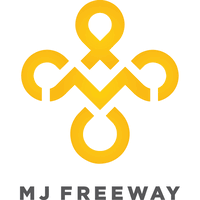Yes, cannabis software can be accessed from numerous devices and platforms. Most cannabis software is web-based, which means it can be accessed using any internet-connected device, including desktops, laptops, tablets, and smartphones. It is also compatible with other operating systems, including Windows, iOS, and Android. Cannabis firms can now access their software from anywhere, at any time, and on any device, making management and monitoring more convenient.
List of 20 Best Cannabis Software
Cannabis OneFive: a cannabis software that merges Veeva QualityOne is a Quality Management System (QMS), with a robust Document Management system. Our easy-to-use platform guarantees complete adherence to the Cannabis Act, empowering businesses to ef...Read More Cannabis OneFive
GrowFlow - the premier compliance software for all your cannabis business needs. Our robust platform not only ensures compliance with state regulations, but also optimizes your workflows for enhanced efficiency. Tailored specifically for the cannabis...Read More GrowFlow
Greenbits is a retail management software that caters to the specific needs of retailers. Its POs feature simplifies the complexities of the retail industry, making it easier for businesses to manage their operations. From inventory control to sales...Read More Greenbits
LeafLogix is a cannabis management software. Keep track of your inventory in real-time and effortlessly comply with regulations. Seamless POS integration and advanced analytics streamline operations and give your business a competitive edge. With Lea...Read More LeafLogix
Weedmaps is a online platform that connects users with nearby dispensaries, delivery services, and doctors in the cannabis industry. With real-time menus, customer reviews, and GPS directions, Weedmaps offers a seamless and informed shopping experien...Read More Weedmaps
POSaBIT - a solution for cannabis retailers. Our comprehensive platform includes a fully integrated point of sale, payment processing, and customer management system to streamline your business operations. With faster transactions, increased sales, a...Read More POSaBIT
Kanha CMS is a Cannabis Management System tailored to oversee and streamline all aspects of your cannabis and CBD cultivation, processing, and production operations. With its comprehensive features, this platform simplifies and optimizes your entire...Read More Kanha CMS
Experience the cutting-edge capabilities of Trellis is the cannabis software that streamlines every aspect of your operation. Enhance your cultivation, manufacturing, distribution, and more with our comprehensive modules, trusted by top organizations...Read More Trellis
Green Bits - a premier cannabis point-of-sale software designed to streamline your dispensary operations. Stay on top of sales, inventory, and customer records with our intuitive platform that can be accessed anytime, anywhere. Trust in our secure da...Read More Green Bits
Cova is a trusted cannabis retail software that has been serving businesses in Denver, CO and Vancouver, Canada for over 20 years. Our advanced POS and digital solutions make managing your cannabis store seamless and efficient. With a proven track re...Read More Cova
Flowhub is the premier cannabis software, chosen by industry leaders such as Native Roots, Cookies, Nectar, and Oregrown. Our platform offers compliance and POS capabilities, streamlining operations and seamlessly integrating with metrics for optimiz...Read More Flowhub
BioTrackTHC is a cannabis software specifically designed for the agriculture industry. This cutting-edge tool offers efficient tracking and analysis of harvest information, cross-breeding, and plant genetics. It also enables seamless management of pe...Read More BioTrackTHC
Leaf Logix is a ERP software designed exclusively for the cannabis industry. With a global presence in 25 states and 3 continents, it offers advanced features such as real-time data analytics and streamlined e-commerce management. Businesses can incr...Read More Leaf Logix
Buddi is a cannabis software designed for retailers and producers. This powerful tool offers a range of features including digital asset and content management, performance tracking, top-notch CRM, and an enhanced shopping experience for customers. S...Read More Buddi
Ample Organics - the trusted cannabis software used by 70% of licensed producers in Canada. This all-in-one solution ensures compliance with ACMPR recordkeeping regulations, making it a go-to for top companies like Aurora, Canada Island Garden, and B...Read More Ample Organics
Flourish is a robust software that caters to the needs of cultivators, manufacturers, distributors, and retailers. It simplifies and automates crucial business operations like cultivation, manufacturing, inventory, distribution, and accounts. With it...Read More Flourish
IndicaOnline is a Point-of-Sale software uniquely crafted for the cannabis market in the U.S. and Canada. Its all-in-one hardware unit and user-friendly iPad interface make it a trusted choice for marijuana sales. Since its establishment in 2011, Ind...Read More IndicaOnline
QuantumLeaf is a cloud-based solution for effectively managing cannabis operations. With its comprehensive platform, you can easily store and access data from anywhere while staying compliant with regulations. Experience the convenience of advanced r...Read More QuantumLeaf
Meadow is a cannabis software for maximizing your businesss potential. Our comprehensive suite of features includes state-of-the-art POS systems, customizable reporting, streamlined delivery and online order management. With advanced inventory manage...Read More Meadow
MJ Freeway is a cannabis software solution trusted by businesses of all sizes. From small boutique shops to large multi-state and multi-country enterprises, MJ Freeways seed to sale tracking capabilities ensure a high return on investment. Streamline...Read More MJ Freeway
Learn More About Cannabis Software
- What Is Cannabis Software?
- What Are The Recent Trends In Cannabis Software?
- Benefits Of Using Cannabis Software
- Important Factors To Consider While Purchasing Cannabis Software?
- What Are The Key Features To Look For In Cannabis Software?
- Why Do Businesses Need Cannabis Software?
- How Much Time Is Required To Implement Cannabis Software?
- What Is The Level Of Customization Available In Cannabis Software?
- Which Industries Can Benefit The Most From Cannabis Software?
- Conclusion
What Is Cannabis Software?
Cannabis software is a form of software that is tailored to the needs of cannabis businesses and individuals. With the legalization of cannabis in different areas of the world, there has been an increase in demand for software solutions to assist streamline operations, manage inventories, and comply with regulations.
Cannabis software is a digital technology that allows businesses to manage every step of the cannabis production and distribution process, from seed to sale. This comprises modules for inventory management, POS, customer relationship management, compliance tracking, and reporting. With such a comprehensive platform, cannabis firms may save time and decrease human error while remaining compliant with all applicable laws and regulations. One of the most important characteristics of cannabis software is its inventory tracking and management capabilities.
This is especially critical for organizations that are legally compelled to track every plant, product, and batch along the whole supply chain. Cannabis software has comprehensive inventory management capabilities, allowing firms to maintain their entire inventory, monitor stock levels, and receive real-time notifications when products are running low. This guarantees that firms always have adequate stock on hand to fulfill client demand, eliminating the risk of understocking or overstocking.
Cannabis software also includes a point-of-sale (POS) system that is tailored to the cannabis industry's special demands. This tool enables businesses to effortlessly handle transactions, manage client information and loyalty programs, and provide thorough sales data. This enables firms to measure sales and revenue, evaluate patterns, and discover areas for expansion.
Another important feature of cannabis software is its compliance tracking and reporting features. Businesses that rely on manual procedures can quickly fall behind in the face of constantly changing rules and severe compliance standards. Cannabis software automates compliance tracking, ensuring that firms are always up to current on the newest legislation and needs.
This not only helps firms stay legally compliant, but it also improves their reputation in the industry. In addition to these core functionalities, cannabis software may include additional modules such as crop management, delivery management, and social media marketing tools, depending on the demands of the business.
What Are The Recent Trends In Cannabis Software?
Cannabis software has rapidly evolved in recent years, keeping up with the growing legality and acceptance of the cannabis industry. With the help of advanced technology and innovative solutions, cannabis software has transformed the way businesses in this industry operate. Let's take a closer look at some of the recent trends in cannabis software that are shaping the future of this sector.
1. Integration Of AI and Data Analytics: One of the most prominent trends in the cannabis software market is the integration of artificial intelligence (AI) and data analytics. This technology enables businesses to gather and analyze data in real-time, providing valuable insights into consumer behavior, inventory management, and sales trends. With the help of AI-powered algorithms, businesses can make data-driven decisions, optimize their operations, and improve overall efficiency.
2. Cloud-Based Solutions: The use of cloud-based solutions in the cannabis industry has significantly increased in recent years. With benefits like remote accessibility, scalability, and cost-effectiveness, cloud-based software has become an attractive option for businesses of all sizes. It allows cannabis businesses to streamline their operations, share data across various departments, and access real-time information from any location or device.
3. Seed-To-Sale Tracking: Seed-to-sale tracking is becoming a mandatory requirement in the cannabis industry, and software solutions have emerged to meet this demand. These solutions enable businesses to track every stage of the cultivation and production process, from seed to sale. They also help with compliance and regulatory requirements by providing detailed reports and ensuring transparency in the supply chain.
4. Point Of Sale (POS) Systems: The adoption of POS systems in the cannabis industry has also increased significantly in recent years. These solutions offer features like inventory management, customer tracking, and compliance reporting, making them essential for businesses looking to streamline their sales process. With the integration of payment options and online ordering, POS systems enable businesses to cater to the needs of modern consumers.
5. Customer Relationship Management (CRM): CRM software has also gained popularity in the cannabis industry, allowing businesses to manage customer data, track interactions, and analyze purchasing habits. With the help of CRM, businesses can better understand their customers, build stronger relationships, and personalize their marketing efforts.
Benefits Of Using Cannabis Software
Cannabis software is a vital tool for both organizations and people in the cannabis industry. It is specifically developed to streamline procedures, increase efficiency, and assure regulatory compliance. Here are some of the main advantages of using cannabis software.
1. Increases Productivity: Cannabis software enables businesses to automate processes such as inventory management, sales tracking, and compliance reporting. This not only saves time but also decreases manual errors, allowing personnel to concentrate on more pressing responsibilities.
2. Improves Efficiency: Cannabis software reduces the need for manual data entry and paper-based processes, which makes operations more efficient. It also offers real-time data and analytics, enabling organizations to make more informed decisions and optimize their operations.
3. Ensures Compliance: The cannabis market is strictly regulated, and noncompliance can have serious ramifications for firms. Cannabis software guarantees that all operations, from cultivation to sales, adhere to state and federal standards, lowering the risk of penalties and license revocation.
4. Improves Data Security: Cannabis software includes built-in security features including data encryption and user authentication to prevent sensitive information from unauthorized access. This is critical for firms in a highly regulated market such as cannabis, where data privacy and security are paramount.
5. Improves Client Management: Cannabis software stores customer information and purchase history, helping businesses to tailor their offerings and increase customer retention. This capability also allows firms to target specific demographics and modify their marketing strategies accordingly.
6. Supports Remote Access: Many cannabis software systems provide cloud-based storage, allowing users to access data and manage operations from any location with an internet connection. This is especially useful for companies with several locations or people who work remotely.
7. Improves Supply Chain Management: For cannabis firms that work with various suppliers and distributors, managing the supply chain can be a difficult undertaking. Cannabis software simplifies this process by centralizing data and allowing for real-time tracking of inventory, orders, and deliveries.
Important Factors To Consider While Purchasing Cannabis Software?
When choosing cannabis software, there are several crucial elements to consider to guarantee that you acquire the finest product for your individual requirements. As you navigate the numerous possibilities available on the market, keep the following crucial things in mind:
1. Compliance With Rules And Regulations: When selecting cannabis software, one of the most important factors to consider is its capacity to assist you in maintaining compliance with the industry's ever-changing rules and regulations. Look for cannabis-specific software that includes built-in compliance capabilities.
2. Customization And Scalability: Because each cannabis business is unique, your software must be adaptable to your specific procedures and workflows. Look for software that allows you to customize features and scale as your firm grows. This will ensure that you receive the most value out of your investment in the long term.
3. User-Friendly Interface: Having a user-friendly interface is critical for ensuring that your staff can browse and use the product efficiently. Look for software with a simple and intuitive interface that includes training and assistance to help your team get up and running quickly.
4. Integration With Other Systems: To streamline your operations, use cannabis software that is compatible with other systems and tools you use. This will help to prevent repeated data entry and increase overall efficiency.
5. Data Security And Privacy: The cannabis market is highly regulated, thus data security is critical. To maintain the security of your business and customer data, use software that includes encryption, access limits, and regular backups.
6. Customer Support And upgrades: As with any technology, it's critical to select a software vendor who provides dependable customer support and timely upgrades. This ensures that any flaws are resolved quickly and that the software grows to meet the industry's evolving needs. By taking these crucial elements into account, you can make an informed selection and select cannabis software that not only fulfills your current demands but is also adaptable as your business expands and the industry evolves. Remember that investing in quality cannabis software can significantly increase your operation's efficiency and compliance, resulting in a more successful and sustainable business.
What Are The Key Features To Look For In Cannabis Software?
When it comes to selecting the best cannabis software for your company, there are a few crucial elements to examine to ensure that you make an informed decision. As a professional content writer, I've developed a simple and clear list of key features to look for in cannabis software.
1. Compliance And Regulatory Management: Given the cannabis industry's ever-changing legal landscape, it is critical to select software that provides strong compliance and regulatory management. Look for features like digital record keeping, real-time inventory tracking, and automatic compliance reporting to guarantee that your company complies with rules.
2. Inventory Management: The ideal cannabis software should include a thorough inventory management system that enables you to track your items from seed to sale. It should include features such as batch tracking, expiry date warnings, and real-time inventory levels, giving you complete control over your supply.
3. The Point Of Sale (POS) System: A feature-rich POS system is essential for any cannabis business since it simplifies the sales process and assures correct data entry. Look for software that includes configurable menus, barcode scanning, and integrated payment processing to increase productivity and customer satisfaction.
4. Customer And Patient Management: As a cannabis business, it is critical to develop good relationships with your clients and patients. Look for software that has customer and patient management features including loyalty programs, targeted messaging, and patient-specific pricing to improve customer satisfaction and retention.
5. Reporting And Analytics: In order to make sound business decisions, you must have access to precise and complete information about company operations. To help you make data-driven decisions, look for software that includes strong reporting and analytics features like sales reports, inventory analysis, and consumer behavior insights.
6. Scalability And Integrations: As your firm grows, you'll need software that can keep up. Look for cannabis software that has expandable features, such as additional user accounts and modules, to allow for future growth. Additionally, select software that can interact with third-party programs such as accounting software and CRM systems to ensure seamless data flow.
Why Do Businesses Need Cannabis Software?
The cannabis industry has grown fast as several states have legalized both medical and recreational marijuana. As the firm grows, there is a greater requirement for efficient and effective management solutions. This is where cannabis software comes into play, giving businesses the resources they need to thrive in this ever-changing market. There are numerous reasons why organizations want Cannabis software, but we'll focus on the most important ones.
1. Compliance With Regulations: The cannabis sector is highly regulated, with stringent laws and regulations that enterprises must follow. Cannabis software helps firms stay compliant by including features like license monitoring, inventory management, and reporting capabilities. This not only ensures compliance, but also protects against costly penalties and legal complications.
2. Streamlined Operations: From seed to sale, there are various processes involved in the cannabis industry. Cannabis software provides a central platform for managing these businesses, including cultivation, distribution, and sales. This streamlines operations, increases efficiency, and reduces manual errors.
3. Data Management: Cannabis software enables firms to store, track, and analyze critical data about their operations. This includes inventory levels, customer information, sales figures, and more. This data is critical for making sound company decisions and finding areas for improvement.
4. Financial Management: The cannabis industry's cash-intensive nature and banking constraints can make financial management difficult. Cannabis software offers businesses tools like point-of-sale (POS) systems, tax calculation, and reporting features to help them manage financial transactions accurately and efficiently.
5. Customer Relationship Management (CRM): In a competitive market, firms must establish and maintain strong customer relationships. Cannabis software includes CRM tools like customer databases, loyalty programs, and targeted marketing to help businesses engage with their customers and improve their entire experience.
6. Scalability And Growth: As the cannabis market grows, firms must expand their operations to meet demand. Cannabis software provides scalable solutions that can adapt to a company's changing needs and requirements, enabling for long-term growth and profitability.
How Much Time Is Required To Implement Cannabis Software?
The time necessary to adopt cannabis software varies depending on several aspects, including the software's complexity, the size of your organization, and the level of customisation required for your individual needs. However, it can take between 2 and 8 weeks to properly develop and integrate the program into your business operations.
First and foremost, the implementation process should not be rushed, as this might have an impact on the software's functioning and efficacy. It is critical to spend the necessary time properly configuring and testing the software before fully using it in your business operations. The first step in deploying cannabis software is to identify your specific company requirements and goals.
This will help you choose the best software and customization options for your company. Once this is completed, the software provider will usually supply you with an implementation plan including the steps and timelines. The actual implementation procedure can take anything from a few days to a couple of weeks, depending on the size of your company and the software's complexity.
This could entail data migration, creating user accounts and permissions, and teaching personnel on how to use the software. It is vital to remember that cannabis software is highly adaptable and may be adjusted to your individual business requirements. This may require more time to fully integrate and adjust the product to match your needs.
After the software is fully integrated, there is a testing and training process to confirm that everything is working properly and that staff are comfortable using it. This may take an extra 1-2 weeks, depending on the size of your company and the number of personnel that need to be taught.
What Is The Level Of Customization Available In Cannabis Software?
Cannabis software is rapidly evolving to meet the growing needs of the industry. When it comes to choosing the right software for your cannabis business, one important consideration is the level of customization available.
we will explore the various levels of customization offered by cannabis software and help you determine which one is best suited for your specific needs.
1. Basic Customization: At the most basic level, cannabis software allows you to customize certain elements such as logo, layout, and color scheme to match your brand identity. This level of customization is ideal for small businesses or those just starting out in the industry. Intermediate
2.Customization: Some software offers a mid-level of customization, which includes features like adding personalized fields, creating custom labels and tags, and the ability to customize workflows. This gives businesses more control over their data and allows them to tailor the software to their unique processes and requirements. Advanced
3. Customization: For larger cannabis businesses with complex workflows and processes, advanced customization options are crucial. These include the ability to create custom reports and dashboards, integration with other systems, and advanced data analysis tools. This level of customization allows businesses to optimize their operations and make data-driven decisions.
4. Tailored Solutions: In some cases, off-the-shelf cannabis software may not fully meet the specific needs of a business. In such cases, tailored solutions are available where the software provider works closely with the business to create a customized solution from scratch. This option is costly but offers the highest level of customization and can be beneficial for businesses with unique processes or specific compliance requirements.
Which Industries Can Benefit The Most From Cannabis Software?
Cannabis software has transformed the way cannabis-related businesses operate. It simplifies processes, increases efficiency, and boosts overall corporate operations. The demand for dependable and effective cannabis software has grown in tandem with the cannabis market's rapid expansion. This has resulted in the creation of a diverse spectrum of software solutions geared exclusively for the cannabis business.
But which industries will gain the most from cannabis software? Let us have a look.
1. Cultivation Industry: Growing cannabis is a complex and time-consuming procedure. This is when cannabis software comes in useful. Cannabis software helps farmers optimize their operations and enhance efficiency by providing features such as automated task management, inventory tracking, and compliance management. It also includes capabilities like environmental monitoring and data analysis, which help producers improve their productivity.
2. Distribution And Supply Chain Management: Cannabis software is also extremely useful for firms involved in the distribution and supply chain of cannabis goods. Real-time tracking and reporting enable firms to keep track of their inventory and ensure prompt and effective delivery. This reduces the possibility of overstocking or understocking and increases consumer satisfaction.
3. Retail Industry: As cannabis becomes legal in more states, an increasing number of retail firms are opening up. Cannabis software includes features such as point of sale, customer loyalty programs, and compliance tracking to help streamline the retail process. It also helps businesses comply with state requirements, lowering the danger of penalties and fines.
4. Medical Market: The medical cannabis market has grown significantly in recent years, as has the demand for dependable cannabis software. This program allows medical cannabis dispensaries to manage patients, track medical histories, and handle prescriptions. It also assists healthcare workers in correct dosing and tracking of patient improvement.
5. Compliance And Legal market: The cannabis market is heavily regulated, making compliance critical for organizations operating in this sector. Cannabis software simplifies the compliance process, ensuring that firms are up to speed with changing rules. This not only saves time and effort, but also lowers the likelihood of noncompliance penalties.
Conclusion
Finally, investing in cannabis software can help cannabis firms improve efficiency, compliance, and scalability. However, before making a purchase, buyers should thoroughly analyze their individual requirements and conduct extensive research on various software options. Before acquiring cannabis software, purchasers should assess their individual requirements and decide which features are critical to their organization.
When assessing alternative software solutions, they should take into account budget, scalability, and ease of use. It is critical for cannabis firms to ensure that the software they use complies with state and federal rules. They should also inquire about the software's security methods for safeguarding sensitive data and ensuring compliance.
Training and assistance should also play an important role in decision-making processes. Buyers should look for software vendors who give comprehensive training and continuing support to ensure a seamless implementation and continued use of the program. Finally, reading reviews and gaining recommendations from other cannabis firms can provide useful information about a software's performance and reliability. Overall, by carefully evaluating these variables, purchasers can make an informed decision and select cannabis software that meets their specific company requirements.
Cannabis Software FAQ's
Can Cannabis Software Be Accessed Across Multiple Devices And Platforms?
Is Cannabis Software Future-Proof and Adaptable To Emerging Technologies Like Ai, Blockchain Or Iot?
Yes, cannabis software is constantly changing to stay abreast of new technology. Many cannabis software businesses are adding AI, blockchain, and IoT features to improve the user experience and expedite processes. With the cannabis industry's rapidly changing landscape, having a future-proof and adaptive software solution is critical for keeping up with the latest innovations. This helps cannabis firms be efficient, compliant, and competitive in the market.
Is There A Free Trial Offered To Assess Cannabis Software Before Committing?
Yes, many cannabis software firms provide a free trial period so that businesses can evaluate the software's functionality and compatibility with their operations before making a commitment. This is an excellent approach for organizations to assess the software's capabilities and determine whether it matches their requirements. It also allows them to ask questions and receive help from the software's customer service team. Make sure to inquire with the software company about their free trial offer information.
Does Cannabis Software Offer Data Security Features And Meet Regulatory Compliance Standards?
Yes, most cannabis software systems include data security measures and adhere to legal compliance norms. These features often include secure data storage, encryption, and user access controls to safeguard sensitive information. Furthermore, these software solutions are intended to comply with cannabis industry regulations and laws, such as seed-to-sale monitoring, to guarantee that firms operate within legal boundaries. To ensure the integrity of their operations, cannabis businesses should choose a software vendor that prioritizes data security and compliance.
Can Cannabis Software Integrate Seamlessly with Existing Tools And Platforms?
Yes, cannabis software is intended to work easily alongside existing tools and platforms. Many software companies provide solutions that are easily linked with popular e-commerce platforms, accounting software, and point-of-sale systems. This enables cannabis businesses to streamline operations and increase efficiency. Businesses can use the correct connectivity to create a single platform for managing inventory, sales, and compliance. It also eliminates the need for manual data entry, lowering the chance of errors while saving time.






















